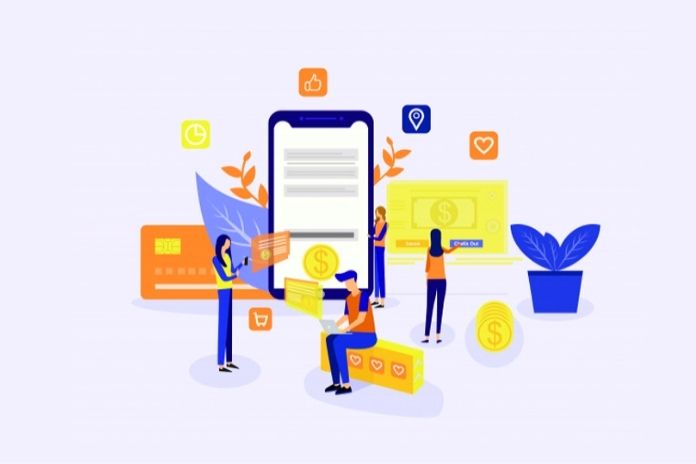Not only do software manufacturers monetize software. Many hardware manufacturers are also starting now. Several trends can be observed here.
The world has become more complex. Hardware manufacturers who want to monetize software have to think about approaching this and maybe get a partner on board for it. Some hardware companies have come a long way on this topic, such as telecommunications providers, while others are still in their infancy. Optimizing software licensing can enable companies to develop new and innovative revenue streams and provide customers with a better experience around their software and services.
At the same time, operational efficiency can be increased, and insights into customer usage behavior can be gained. Agricultural machinery manufacturers are an example of software monetization in the hardware world. As with Tesla, functions can be activated on the tractor during operation via time-based licenses,
However, licensing projects are time-consuming, especially if the necessary experience is lacking. After careful study, many organizations quickly realized that what was initially identified as a licensing problem is a business integration problem. Attempting to solve licensing problems with a narrow technology focus fails to adequately account for business processes and other necessary components for a successful software licensing project.
When companies have the proper license management technology in place, orders flow through the systems. Then goods and services are sold, and charges are carried out according to customer requirements. But this requires constant adjustment, and this can only succeed if you keep pace with current trends.
Subscription Is Becoming The Standard
The trend towards the switch to subscription is unbroken and continues to pick up speed. There is more talk than implementation about usage-based licenses. Determining usage also affects data protection regulations and is therefore often not trivial. The costs adapt to the use, which sounds positive at first. But in the event of an unexpected success, the costs can quickly skyrocket. Usage-based licenses are certainly not the dominant business model of the future, but they will complement subscriptions in some areas.
With a subscription, customers have fewer investment hurdles and no high one-off investments. Subscriptions are an ongoing charge. Companies can plan for this with fewer hurdles and less effort, and they don’t have to put the money on the table all at once. Another aspect is that the manufacturer has a permanent obligation to develop the product continuously. Otherwise, the customer will drop out. Today, cloud providers are building functions around the topic of customer success. They ensure that the customer’s implementations run successfully – that is, not only sell projects but also lead them to win and keep the “time to value” as short as possible.
Hybrid Licensing
“Software delivery from the cloud is becoming more and more important. While a few years ago, there was still great skepticism about the cloud in Germany, it has now largely established itself. However, software licensing must support all delivery methods, on-premises and from the cloud,” says Ansgar Dodt, VP Strategic Development Software Monetization at Thales CPL.
This enables customers, for example, to buy 100 licenses and distribute them over different locations, some “stand-alone,” others as network licenses, and still others cloud-based. You can move it all back and forth as you wish. All of this must be done transparently for the end customer and the manufacturer. Ultimately, it’s about abstracting the licensing. The delivery models for the licenses run at the bottom, and an abstract license management system runs at the top. Assignments of rights can be managed dynamically by the customer without the manufacturer having to worry about it.
With the abstraction, independence from the license mechanism can be established. “The speed at which customer expectations and market requirements evolve is increasing exponentially. For this reason, licensing is no longer a set-it-and-forget-it project. It has become essential to regularly review and evaluate licensing and enforcement strategies and adjust them if necessary,” Dodt concludes.
Integration Of Entitlement Management
Another trend is to integrate entitlement management into the environment, such as ERP or CRM systems. The integration takes place via robust web services or low code connectors, or pre-built connectors.
One example is a Salesforce connector: an order is generated in Salesforce and imported into the customer’s system via a finished connector. An entitlement is generated there, and the ID is returned. Thus, Salesforce also knows and can generate sales. With Sentinel Connect, Thales, for example, has a cloud service that can deliver pre-built and low-code connectors. An entitlement management system is a central database in which all customer authorizations are stored. This includes enforcement technologies with license checks.
Data Export For More Insights
Many talk about insight, analytics, and dashboards and want to get more information. A data export functionality can extract data or output it via an API or a user interface. Data export reports provide better insight into the dynamics of the software business. The predefined reports can be customized and configured to provide meaningful data. This includes information about authorizations, activations, sales partners, and products. The exported data can then be visualized in a business intelligence tool such as Microsoft Power BI. This ensures more transparency, more information, and better decisions.
Conclusion
The world of software licensing continues to turn towards the cloud. Ultimately, it affects every part of a company. However, the most crucial trend remains hybrid licensing, i.e., via the cloud and on-premises, to serve both worlds. The visualization of the collected data is then the next big challenge that companies have to master. Ultimately, it is about generating added value for customers who want to switch from a classic licensing world to the modern subscription-licensing world.

